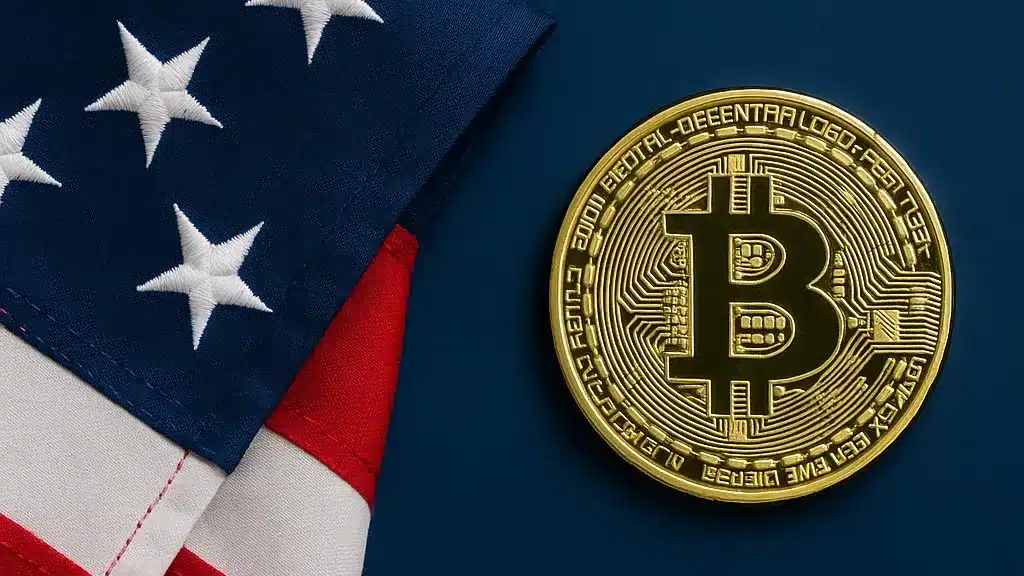

With just weeks to go before a crucial federal deadline, the U.S. government is inching closer to a historic policy decision: whether to formalize and expand a strategic Bitcoin reserve. The move, once viewed as fringe, is gaining serious momentum inside federal circles as part of a broader pivot toward digital asset preparedness—and its outcome could dramatically impact Bitcoin’s price, credibility, and role in global finance.
What Is the Strategic Bitcoin Reserve?
The concept mirrors the U.S. Strategic Petroleum Reserve—a government-controlled store of oil used for economic stability and national security. Similarly, a strategic Bitcoin reserve would serve as a digital hedge against fiat devaluation, global sanctions, or systemic market shocks.
While the U.S. government has long held seized crypto assets (notably from criminal prosecutions like Silk Road), this would be the first time Bitcoin is actively retained not for liquidation, but as a monetary asset of national interest.
Upcoming Deadline and What’s at Stake
According to internal Treasury memos, the Biden-era executive order on crypto infrastructure gave federal agencies until May 15, 2025, to finalize their recommendations on a digital asset reserve framework. That deadline now looms large under President Trump’s administration, which has signaled a more aggressive stance on hard assets and digital sovereignty.
If the reserve is approved and Bitcoin is designated as a strategic asset:
- The U.S. government would stop auctioning BTC from federal seizures.
- Agencies could begin accumulating Bitcoin via OTC purchases or mining partnerships.
- It could open the door to global central bank competition over Bitcoin ownership.
Potential Impact on Bitcoin’s Price
Bitcoin is already trading above $94,000 at press time, buoyed by institutional demand, halving-driven supply shocks, and record ETF inflows. But a federal declaration of BTC as a strategic asset could ignite a massive supply squeeze.
Here’s what analysts expect:
- Institutional FOMO: A U.S. endorsement could trigger renewed investment from sovereign funds and hedge funds seeking exposure before the next leg up.
- Reduced Supply: If the government ceases auctions and starts accumulating, fewer BTC will be available to the open market.
- Psychological Shift: Bitcoin would be seen not just as a store of value—but a sovereign-grade reserve asset akin to gold.
Veteran crypto analyst Dylan LeClair said this week, “If the U.S. makes Bitcoin part of its strategic reserves, it’s game over for skeptics. You’ll see nations and capital scrambling to catch up.”
Why Now?
Several recent events have accelerated this policy consideration:
- The success of spot Bitcoin ETFs, which have drawn over $60 billion in inflows since January.
- Rising geopolitical instability and central bank de-dollarization.
- Trump’s renewed focus on “economic independence” and hard money assets, including gold, rare earths, and now Bitcoin.
Could Other Nations Follow?
A U.S. strategic reserve would likely pressure other governments—especially China, Russia, and EU nations—to either follow suit or risk falling behind in monetary optionality.
El Salvador, which made Bitcoin legal tender in 2021, has already reaped massive gains from its treasury Bitcoin holdings. A similar play by the U.S. would carry unprecedented weight and credibility, especially if other G7 countries join in.
Bottom Line
The clock is ticking on a momentous U.S. decision that could fundamentally shift the trajectory of Bitcoin—from speculative asset to sovereign monetary hedge.
For investors, this isn’t just policy—it’s history in the making.




